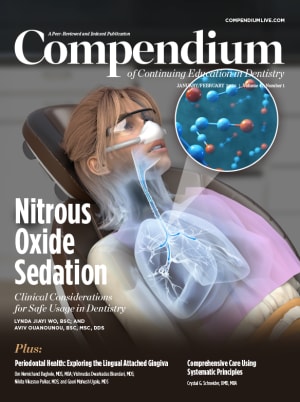How Dentists Can Respond to Online Reviews to Grow Their Practice
Emily Washcovick
Nearly 80% of patients use online review sites as their first step to finding a new doctor, according to a 2014 Software Advice™ survey.1 While there are a number of platforms solely dedicated to medical reviews, Yelp remains the most well-known available resource for patients to obtain real-time information on dentists and their practice. For practitioners who have not yet done so, it may be wise to consider how to best approach online reviews to grow their practice with new patients.
The most basic way is simply to take the time to respond to patient reviews. Reviews and the responses that accompany them influence potential patient decisions. In fact, 60% of surveyed consumers feel it is important for doctors to respond to online reviews.1 Similarly, Yelp's Data Lab found that Yelp users are 33% more likely to upgrade their review if a business responds with a personalized message within a day. It also found that businesses that respond to reviews see an increase in review count. This increase in review volume helps attract organic traffic to business pages on Yelp. In other words, more potential patients in need of a dental provider are looking at these businesses as an option.
It is crucial to join the conversation happening about your practice, and it's easy to respond in a way that does not violate HIPAA. A practitioner can respond to reviews publicly or directly through Yelp for Business Owners (biz.yelp.com). When responding to reviews it is important to remain professional. Start by thanking reviewers for their feedback, and share any updates that have been made as a result. When potential patients see a well-crafted response to a critical review, it's as if they are overhearing the doctor on the phone with a concerned patient while sitting in the waiting room. It gives them more context and insight into the dentist's patient care and attention to feedback.
Responses to both positive and critical reviews are important and can equally help represent the dental practice online. The following few best practices can help dentists approach each type of review while not putting patient privacy in jeopardy.
The Positive Review: By all means, respond! These patients took the time to offer your practice positive feedback online. Sending a direct message is a fast and effective way to let your patients know you appreciate their feedback and their business. Occasionally, respond to those stellar five-star reviews publicly so potential patients will see that you notice and care.
Remember that even if the patient wrote in great detail about a visit or treatment, dentists should not confirm or deny whether the reviewer is a patient of theirs. Dentists should keep their responses general to the practice as a whole. For example, "Our practice aims to deliver the highest quality patient care. We love to hear about these positive experiences. Thanks for sharing this feedback with us!"
The Critical Review: This can be an opportunity for growth. When seeing a critical review, rather than get upset, it is important to remain calm, cool, and collected. It may require a few hours to cool off and settle down. Then, once emotions have been brought under control, it is time to respond and outline a plan to fix the situation. A two-step approach can be used:
Step 1: Respond directly to the reviewer using a direct message. You want to take the conversation to a HIPAA-compliant channel, so thank the reviewer for reaching out to you and provide him or her a way to communicate with you offline to resolve the issue without the risk of violating patient privacy.
Step 2: Post a public response while you wait to hear back from the patient directly. This should be a generalized message that does not confirm the reviewer is a patient of yours, nor should it delve into any treatment conversations. Thank the reviewer for the feedback, outline steps you have taken to contact him or her, and urge the person to contact you to talk further about what happened, offline. This shows that you value feedback and want your patients' experiences to be exceptional. The intention of this public response is to showcase your business practices to all of your future patients; it is not to try to win that reviewer over.
As patients increasingly turn to online review sites to determine which dental practice is best for them, dentists have the ability to join that conversation. By focusing on their organization's values and policies, dentists can positively represent both their practice and patient care beliefs without violating HIPAA. If you are ever unsure about your review response strategy, consider checking with your lawyer for additional guidance.
About the Author
Emily Washcovick
Ms. Washcovick is Business Outreach Manager at Yelp. She hosts informational sessions with local business owners across North America on best practices for navigating online reviews and contributes to Yelp's "Blog for Business Owners."
